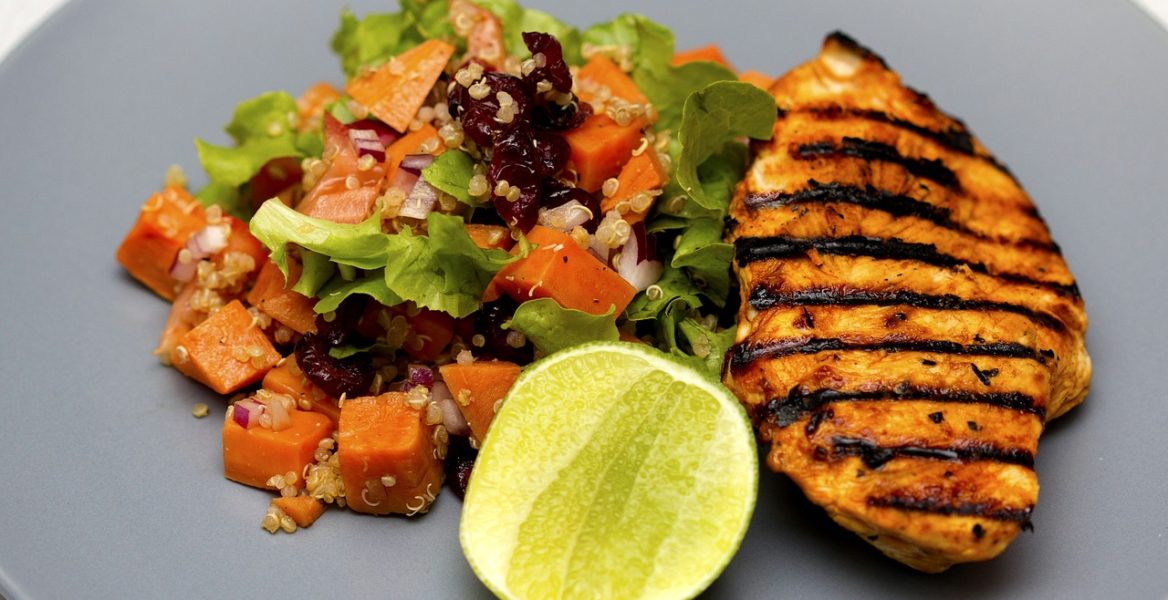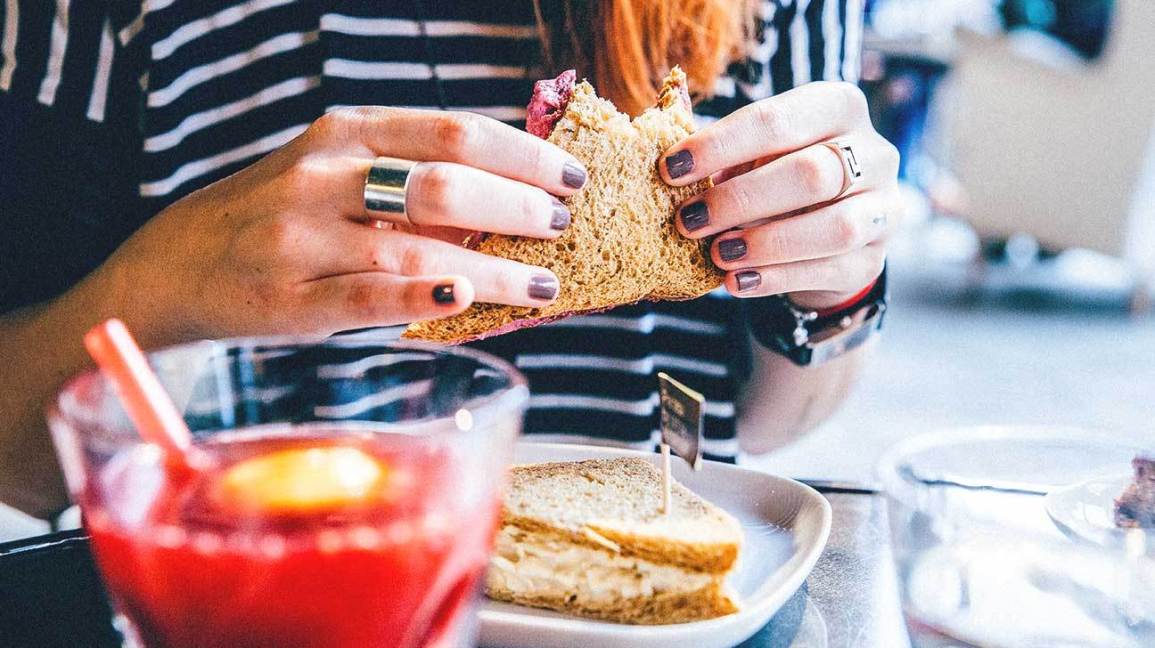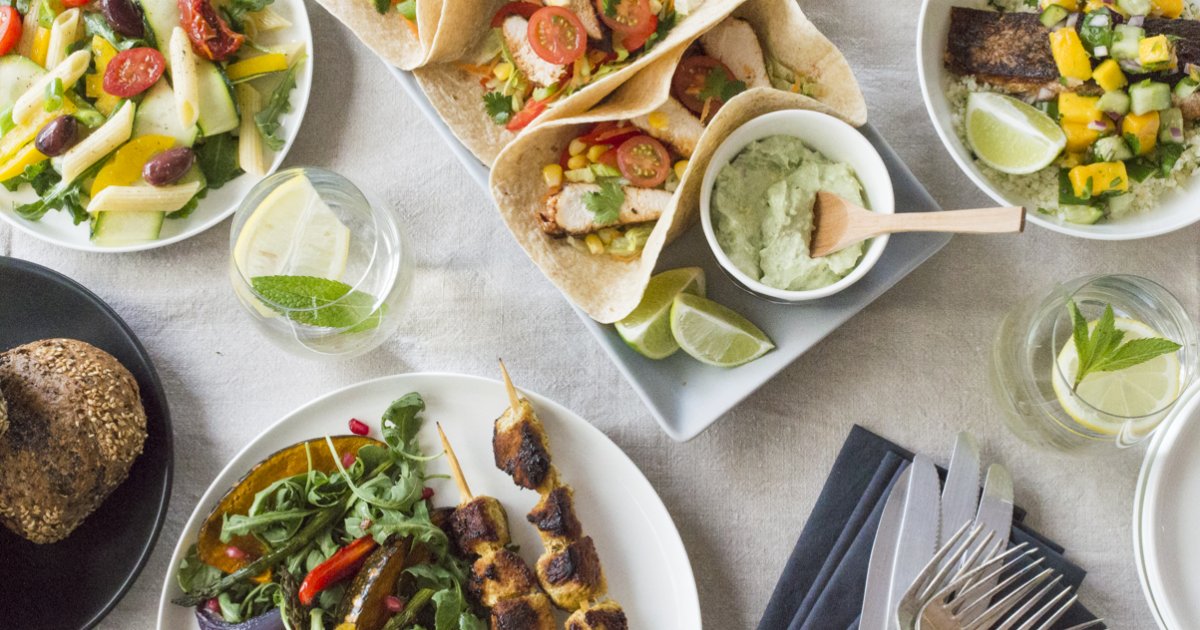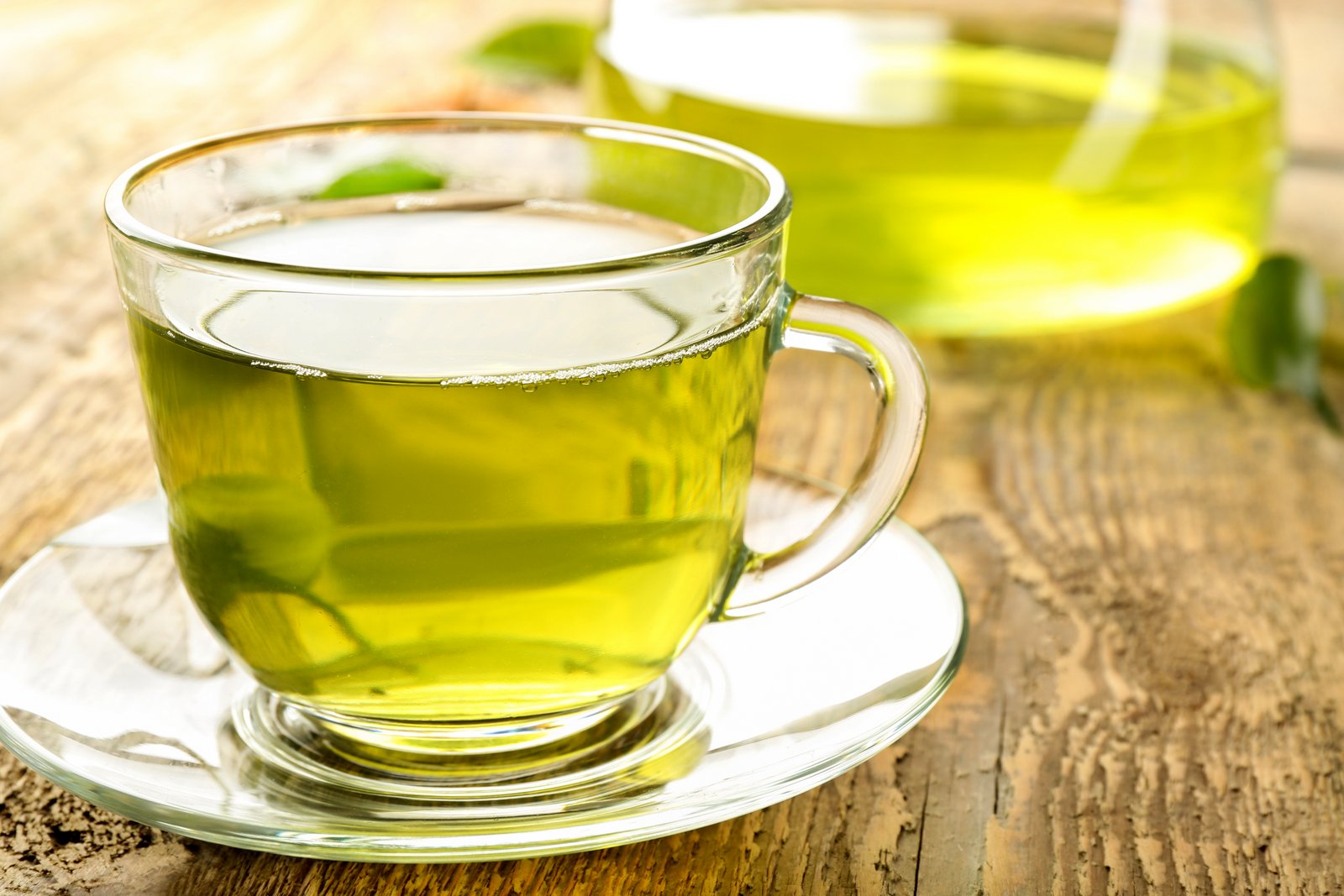We’ve all tried many ways to deal with hunger, only to be left feeling miserable and eating twice as much as we would have in the first place. Fortunately, there are some things we can work on to improve our binging battles. Here are five tips which can help you better manage your hunger.
Drink more water

It’s been found that drinking water 15 to 30 minutes before a meal is pretty decent in curbing feelings of hunger. Water consumption impacts stomach distention, or the stretching of the stomach, which is one action that can signal fullness to the brain.
One study even found that water before a meal curbed desires for sweets and savory foods better than not drinking water at all. Ultimately, this type of pre-loading of water makes you feel full quicker, and in return, allow you to satisfy your hunger with less food. Based on several studies, 1 and a half to 2 cups of water before your meal seem to do the trick. Drinking more water can also help in weight loss also.
Don’t drink your calories

Drinking beverages like sodas, sugary teas, or fruit juices might play a role in stomach expansion much like water. But unlike water, these drinks also add a bum load of calories. Not only that, much of the calories added, particularly processed sugars, do very little in terms of making you feel full compared to actual food of similar calorie content. The only exception is that of drinks with a thicker consistency like milk and protein shakes.
One study showed that a thick, creamy protein shake had a greater impact on satiety, or keeping you feeling full than a protein shake fashioned to have a smoother, juice-like consistency.
Another study showed that milk generated greater subjective fullness and less hunger than cola. But in any case, real food still wins out. If you feel hungry, the last thing you wanna do is reach for a liquid sugar bomb.
Get more protein

Protein has consistently shown to be the best out of the three macronutrients to increase fullness.
One study found that increasing the total protein content of a diet from 15% to 30% led to greater feelings of fullness and satiety. But most importantly, subjects spontaneously consumed 441 fewer calories per day throughout a 12-week period. This might also explain why people have found decent success with low-carb diets. The restriction of carbs means a disproportionately greater intake of protein, thus leading to a dip in total energy intake due to greater satiation. It remains to be seen as to exactly why protein is more satiating. Some of it might be explained by its relatively greater food volume, leading to a fuller stomach with fewer calories.
Another theory suggests that protein increases thermogenesis, which is a factor closely correlated to satiety. Not exactly definitive, but in any case, more protein means more fullness. So, get your protein!
Remove potential food cues

In this day and age, it doesn’t take much effort to find pictures of all sorts of delicious treats on your social media. And the very indulgence of such media might just explain your actual indulgence of such treats. This belief is built upon the concept that hunger is a multi-factorial construct, where, beyond physiological and cognitive factors, sensory inputs can influence our appetite. The simple sight, smell, and ultimately taste of food can trigger a cephalic phase response, where your body induces gastric secretions and salivation, creating a heavy desire for the food you see on your phone. Instead of looking at your favorite foody’s IG profile, look at your homework, your actual work, or even your significant other… as long as they’re not eating ice cream in front of you.
Give healthy food a shot

Unfortunately, people often think that it’s supposedly “OK” to go for the pizza or cookie as long as it fits in their macros or calories. Unsurprisingly, those people often fail to see results. People think that to satisfy their hunger or appetite, they should eat the foods they desire.
Eating more whole, nutritious, and filling foods, the volume of your meals are much greater relative to its calorie content, thus increases stomach fullness more quickly and ultimately help combat hunger. Processed foods of similar calorie content, on the other hand, provides much less in terms of food volume, keeping you hungry still and reaching for more. That doesn’t mean we can’t have any of the junk foods we desire, but by prioritizing and eating the healthy foods first, it leaves much less room and ultimately less appetite for the junk food. For Example, if you feel like still having chocolate after your chicken salad, then go for it. Just don’t overdo it. It’s better than having a whole chocolate bar plus a double cheeseburger, and then reaching for two leaves of spinach and half a broccoli you saved from lunch. In the end, put some effort into eating the healthy foods first before reaching for anything else. We think that’s an important point to close out on.
Drinking green tea

Green tea is very good for health. Especially, if you are losing weight then it’s a good way to control the hunger.
It contains weight loss properties – caffeine and catechins.
Caffeine is a well-known stimulant that increases fat burning and suppresses appetite (33, 34).
Catechins, particularly epigallocatechin gallate (EGCG), have been shown to boost metabolism and reduce fat (35).



